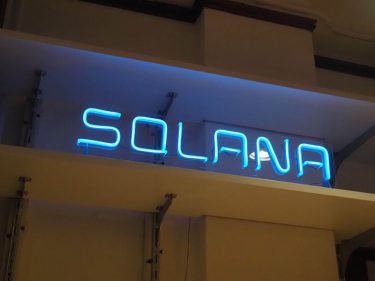Protocol Village: Artela, for Extending Blockchain Functionality, Details New Parallel Architecture
June 23: Artela, a blockchain designed to extend the functionality of other blockchains, released its latest whitepaper, “Artela Scalability: Parallel Execution Stack and Elastic Blockspace.” According to a blog post, the whitepaper “introduces a brand new parallelized blockchain architecture: not only achieving parallel execution but also supporting parallel storage. On top of all this parallelization, we will further realize nodes that support elastic computing, achieving elastic node block space and bringing predictable performance to dApps.”
Protocol Village is a regular feature of The Protocol, our weekly newsletter exploring the tech behind crypto, one block at a time. Sign up here to get it in your inbox every Wednesday. Project teams can submit updates here. For previous versions of Protocol Village, please go here. Also please check out our weekly The Protocol podcast.
June 21: Decentralized autonomous organization (DAO) Osmosis voted to adopt a fee-free Bitcoin bridge to allow bitcoin (BTC) to move into the Cosmos ecosystem. Key to the process is a revenue-sharing agreement with Bitcoin bridge Nomic, according to an emailed announcement shared with CoinDesk on Friday. A bridge is a way of improving interoperability of blockchains by allowing users to move crypto assets from one system to another.
June 21: Aleph Zero, a privacy-enhanced public blockchain operating on a Substrate stack developed by Polkadot developer Parity Technologies, introduced zkOS, an EVM-compatible privacy layer that generates zero-knowledge proofs in under a second on consumer devices, according to the team: “This allows for private transactions and dApp interactions without revealing underlying data. ZkOS uses Halo2 with KZG commitments for faster proof generation and provides a zkToolkit to simplify integration for developers. Based on benchmarks, zkOS can execute proofs in 600-800ms on MacBooks. ZkOS is designed to be faster, more user-friendly and easier for developers to integrate into Ethereum applications. ZkOS is now live on testnet.”
June 21: Arbitrum, the leading Ethereum L2 scaling solution by total value locked, was set to launch Orbit Layer Leap on Friday, “enabling users to bridge funds from Ethereum L1 to L3 chains within the Arbitrum Orbit ecosystem in a single-click,” according to the team: “This groundbreaking feature eliminates the need to interact with L2, enhancing user experience and interoperability. Layer Leap will initially support ProofOfPlay and RariChain, reflecting Arbitrum’s commitment to driving mainstream adoption of layer-2 and layer-3 solutions.”
June 20: Farworld Labs, the Farcaster-native gaming company, has closed its $1.75 million pre-seed funding round, co-led by Lemniscap and Variant. According to the team: “The funding will enable Farworld Labs to expedite the rollout of upcoming Q3 releases, including the highly anticipated launch of the Farcade platform in conjunction with top-tier studios and developers. Built on decentralized social media protocols, the Farcade is a platform and suite of tools for developers to build crypto-native games that integrate with onchain social, making games instantly playable within social media feeds with just a single click.”
June 20: The Celo Foundation is elevating homegrown and Web3 native talent into key senior leadership positions. According to the team: “Eric Nakagawa has been appointed to the new role of Executive Director of the Celo Foundation. He will work closely with Rene Reinsberg to oversee the Foundation’s daily operations. Isha Varshney has transitioned from head of DeFi to head of Ecosystem. She will oversee projects building on Celo, and lead business development efforts with both Web2 and Web3 firms. Sophia Dew joins the Celo Foundation as developer relations lead to support builders developing on the emerging Ethereum L2.”
June 20: Botanix Labs, building an EVM-equivalent layer-2 network atop Bitcoin, announced the appointment of security expert and industry veteran Ron Stoner as its new Head of Security, according to the team: “With this addition, the Botanix Labs team is uniquely positioned to develop industry-leading infrastructure that securely scales Bitcoin-native financial tools. Ron Stoner brings a wealth of experience in designing and testing blockchain-based networks as one of the most respected hackers, educators, and security professionals in the cryptocurrency industry.”
June 20: POKT Network, a project for decentralized RPC infrastructure processing, is expanding into AI inference services, according to the team: “The network’s open-source, permissionless design aligns incentives among model researchers, hardware operators, API providers and users. Utilizing its Relay Mining algorithm, POKT creates a transparent marketplace for cryptographically verified usage, enabling AI researchers to disseminate work and generate revenue without maintaining infrastructure. This aims to decentralize AI, competing with centralized entities and supporting broad participation.”
June 20: ZKX, describing itself as “the first social perp trading DEX on Starknet and Ethereum,” has raised $6.3 million in a seed round featuring key investors, such as Flowdesk, GCR and DeWhales, according to the team: “This brings the protocol’s total funding to $7.6 million over the past two years. These funds are earmarked to enhance ZKX’s growth and development. One of their main goals is to enable the development of new products such as its native token, $ZKX, which launched on KuCoin, Gate.io and Bitget this week. The token will empower users in governance and staking, with features like social copy trade pools and cross-chain interoperability planned.”
June 20: BNB Chain has successfully activated the BEP 336 Haber Hardfork, according to the team: “This upgrade introduces blob-carrying transactions, drastically reducing gas fees by up to 90%, and marks a significant step in optimizing BNB Chain’s data storage and processing capabilities. This cost reduction enhances the overall efficiency of the ecosystem, positioning BNB Chain as one of the most economical platforms for developers and users. The opBNB scaling solution, which already boasts some of the lowest transaction costs in the industry, will see further reductions to approximately $0.0001, and benefiting the L2s operating on BSC.”




